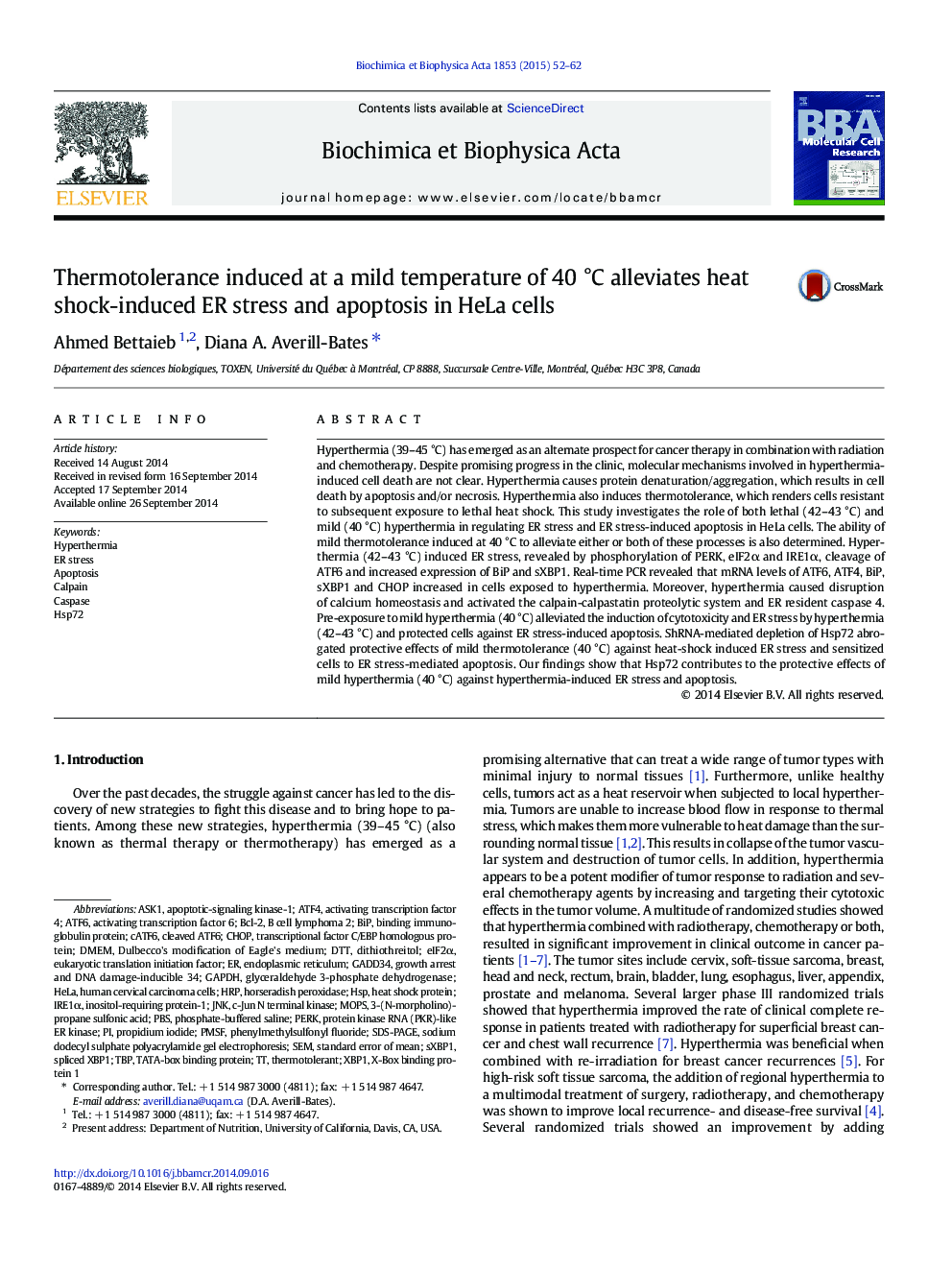| Article ID | Journal | Published Year | Pages | File Type |
|---|---|---|---|---|
| 1950522 | Biochimica et Biophysica Acta (BBA) - Molecular Cell Research | 2015 | 11 Pages |
•Hyperthermia (42–43 °C, 2 h) activated the ER stress response: PERK, ATF6 and IRE1α.•Exposure to hyperthermia for longer time of 3 h caused apoptosis through the ER.•Apoptosis involved CHOP, calpain-calpastatin proteolytic system and caspase 4.•Mild thermotolerance (40 °C) decreased heat (42–43 °C)-induced ER stress/apoptosis.•Protective effects of mild thermotolerance (40 °C) mediated in part through Hsp72.
Hyperthermia (39–45 °C) has emerged as an alternate prospect for cancer therapy in combination with radiation and chemotherapy. Despite promising progress in the clinic, molecular mechanisms involved in hyperthermia-induced cell death are not clear. Hyperthermia causes protein denaturation/aggregation, which results in cell death by apoptosis and/or necrosis. Hyperthermia also induces thermotolerance, which renders cells resistant to subsequent exposure to lethal heat shock. This study investigates the role of both lethal (42–43 °C) and mild (40 °C) hyperthermia in regulating ER stress and ER stress-induced apoptosis in HeLa cells. The ability of mild thermotolerance induced at 40 °C to alleviate either or both of these processes is also determined. Hyperthermia (42–43 °C) induced ER stress, revealed by phosphorylation of PERK, eIF2α and IRE1α, cleavage of ATF6 and increased expression of BiP and sXBP1. Real-time PCR revealed that mRNA levels of ATF6, ATF4, BiP, sXBP1 and CHOP increased in cells exposed to hyperthermia. Moreover, hyperthermia caused disruption of calcium homeostasis and activated the calpain-calpastatin proteolytic system and ER resident caspase 4. Pre-exposure to mild hyperthermia (40 °C) alleviated the induction of cytotoxicity and ER stress by hyperthermia (42–43 °C) and protected cells against ER stress-induced apoptosis. ShRNA-mediated depletion of Hsp72 abrogated protective effects of mild thermotolerance (40 °C) against heat-shock induced ER stress and sensitized cells to ER stress-mediated apoptosis. Our findings show that Hsp72 contributes to the protective effects of mild hyperthermia (40 °C) against hyperthermia-induced ER stress and apoptosis.
